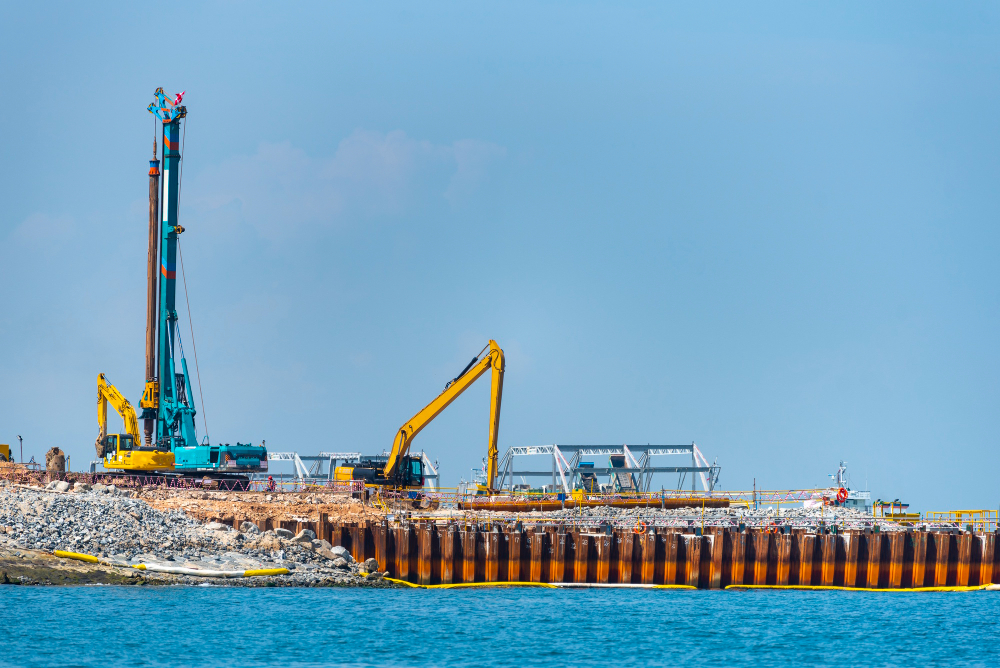Dredging is like a big underwater cleanup. It’s done in rivers, lakes and seas to remove mud, sand and other stuff from the bottom. That helps make the water deeper and safer for boats and ships. It’s really important for moving goods and helping trade. Dredging also stops flooding by making more room for water in rivers and lakes. When it rains a lot, this extra space can prevent water from spilling over into towns and cities. Plus, dredging can make new land for farms or parks. In this article, we’ll talk about the good and not-so-good things about dredging. You might even find out about used dredge pipe for sale, which is part of how dredging is done.
The Good Things About Dredging
Dredging is like cleaning the bottom of rivers, lakes and the sea. It’s important because it helps boats and ships move safely by ensuring the water is deep enough. That is great for businesses that need to move things by water. It’s also good because it can make new land. When water washes soil away, dredging can bring it back. This new land can be used for farms, houses or parks.

Dredging done by using dredged pipes also helps prevent floods. When they take mud and sand from the bottom of rivers and lakes, there’s more space for water. So, when it rains a lot, there’s less chance of the water going over the edges and flooding nearby places. Also, sometimes, they find useful things in the mud, like minerals. This can be good for making money. And dredging helps the environment, too. Removing dirty mud makes the water cleaner, which is good for fish and plants.
The Not-So-Good Things About Dredging
But dredging has some problems, too. It can be hard on the fish and plants living there when they dig up the mud. But people are working on ways to do it without hurting them. They must also be careful where they put the mud they take out. If they’re not careful, it can harm the environment. And dredging can be noisy, which can bother people who live nearby. So, they try to find ways to make it less loud.
Another challenge is what to do with all the mud and sand. It’s important to use it well. For example, it might be used to help build things or to make parks and gardens, so nothing is wasted. And they have to follow the rules to ensure dredging does not do more harm than good. These rules protect the environment and ensure the work is done right.
What Dredging Is And Why It’s Done
Dredging means removing mud, sand and other debris from the bottom of rivers, lakes and seas with the help of used dredged pipes. That is done to make the waterways deeper and wider so boats and ships can pass through easily. It’s very important for moving goods around and helps businesses a lot. When waterways are deep and clear, boats can move safely and quickly.
Dredging also helps to prevent floods. By making rivers and lakes deeper, they can hold more water, which is beneficial when there is a lot of rain. Dredging also cleans the water. The mud at the bottom of rivers and lakes can be dirty. By removing this mud, the water becomes cleaner, which is better for fish and plants. And cleaner water is better for everyone.
Exploring Alternatives To Traditional Dredging
While dredging is a common solution for waterway maintenance, exploring alternative methods is vital for sustainable practices. These alternatives include sediment trapping, habitat restoration and natural processes to maintain waterways. Innovative techniques such as hydraulic dredging or using dredged material for beneficial purposes also offer environmentally friendly options.
Delving Into Used Dredge Pipes: Frequently Asked Questions
1. What’s the Average Price Tag for Dredging Projects?
The cost of dredging can change a lot depending on where it’s done, how big the project is and what kind of sediment they need to remove. But, if you plan it well and use things like used dredge pipe for sale, you can cut down on costs.
2. How Does Dredging Influence the Long-Term Health of Marine Ecosystems?
The long-term effects on marine life and habitats depend on how the dredging is done and how sensitive the area is. Nowadays, people use newer methods that are better for the environment and try to cause less harm to marine ecosystems.
3. What Regulatory Measures Exist to Mitigate Dredging’s Ecological Impact?
Yes, there are many rules about dredging. These regulations ensure that dredging doesn’t harm the environment too much. They focus on keeping nature safe and ensuring the dredging is done sustainably.
4. In What Ways Does Dredging Impact the Water Quality in Its Vicinity?
Dredging can affect water quality, but these changes can be minimized if planned and executed carefully. Moreover, using modern dredging methods can help protect and clean the water.
5. Can You Share Success Stories of Dredging Alternatives in Similar Scenarios?
Yes, there are some good examples where other methods, instead of traditional dredging, have been used. These alternatives show more sustainable ways to manage waterways and protect the environment.
Get The Best Dredging Supplies With Bigfoot Pipe And Piling
Ready to take on your next dredging project? Bigfoot Pipe And Piling has everything you need to make it a success. We’ve got you covered, from top-quality used dredge pipes to a wide range of piling supplies. Don’t let the search for the right equipment slow you down. Contact us today and see how our products can streamline your dredging operations.
